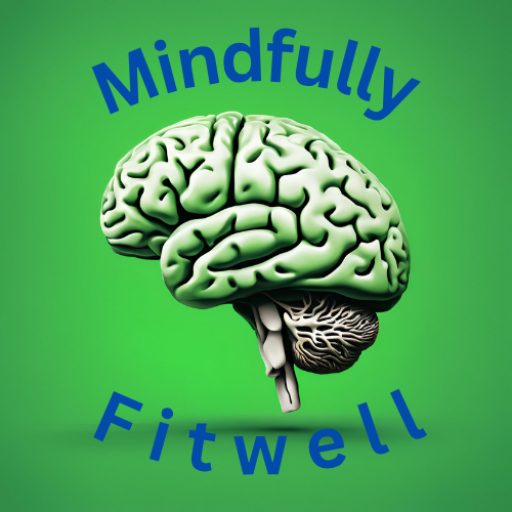Sleep is essential for our health and well-being, yet myths about it abound. Misinformation can lead to habits that disrupt our rest. In this post, we’ll separate sleep myths from facts, providing actionable insights to help you achieve optimal sleep. Ready to master your sleep? Discover how the Sleep Mastery Course can guide you toward restful nights.
Common Sleep Myths
Myth 1: You Can “Catch Up” on Sleep Over the Weekend
While sleeping in on weekends might feel refreshing, it doesn’t fully compensate for weekday sleep debt. Chronic sleep deprivation affects your health, mood, and productivity, and catching up on sleep over a couple of days isn’t enough to reverse these effects.
Fact: Prioritize consistent sleep schedules, even on weekends, to maintain a healthy circadian rhythm.
Myth 2: Adults Need Less Sleep as They Age
It’s a common belief that older adults require less sleep. In reality, adults typically need 7-9 hours per night throughout their lives. However, sleep patterns may change with age due to factors like health issues or medications.
Fact: Older adults need just as much sleep as younger adults to support cognitive function and overall health.
Myth 3: Snoring Is Harmless
Snoring may seem like a minor nuisance, but it can indicate sleep apnea, a serious condition that affects breathing during sleep.
Fact: If snoring is loud or accompanied by gasping sounds, consult a healthcare professional for evaluation.
Myth 4: Sleeping Pills Are the Best Solution for Insomnia
While sleeping pills can provide temporary relief, they’re not a long-term solution for insomnia.
Fact: Behavioral changes and therapies like CBT-I are more effective for addressing insomnia in the long run.
Sleep Facts You Should Know
Fact 1: Quality Matters as Much as Quantity
Sleeping 8 hours doesn’t mean much if those hours are restless or interrupted. Sleep quality impacts how restorative your rest is, affecting your energy, focus, and mood during the day.
Fact 2: Technology Disrupts Sleep
Blue light from screens interferes with melatonin production, delaying sleep onset. Late-night scrolling may also increase stress or overstimulation, making it harder to wind down.
Tip: Limit screen use an hour before bedtime or use blue light-blocking tools to improve sleep quality.
How to Achieve Sleep Mastery
Achieving sleep mastery starts with creating an environment and habits that support restful nights. When I struggled with insomnia during a stressful project, I discovered that small changes—like dimming lights and practicing guided meditation—made a world of difference. Let me share actionable steps to help you, too.
Create a Sleep-Friendly Environment
- Darkness: Use blackout curtains or an eye mask to block light. I remember my first night using an eye mask—it felt odd at first, but the uninterrupted sleep was worth it.
- Temperature: Keep your bedroom cool, ideally around 65°F (18°C). A fan or cooling blanket can make this easier during warmer months.
- Noise: White noise machines or earplugs can help if you’re sensitive to sounds. Once, a simple white noise app on my phone drowned out the loud city traffic outside my window.
Develop Healthy Sleep Habits
- Stick to a consistent bedtime and wake time, even on weekends.
- Incorporate relaxation techniques like meditation or gentle stretching. One night, a five-minute breathing exercise significantly reduced my bedtime anxiety.
- Avoid caffeine and heavy meals close to bedtime. I learned the hard way that late-night coffee and restful sleep don’t mix.
Learn More with Our Sleep Mastery Course
Looking to deepen your understanding of sleep? Our Sleep Mastery Course provides expert tips, tools, and strategies tailored to your needs. Whether you’re struggling with insomnia or just want to optimize your rest, this course has you covered. Plus, you’ll gain insights into advanced techniques like sleep journaling and personalized schedules that I wish I had known earlier in my journey.
Create a Sleep-Friendly Environment
- Darkness: Use blackout curtains or an eye mask to block light.
- Temperature: Keep your bedroom cool, ideally around 65°F (18°C).
- Noise: White noise machines or earplugs can help if you’re sensitive to sounds.
Develop Healthy Sleep Habits
- Stick to a consistent bedtime and wake time.
- Incorporate relaxation techniques like meditation or gentle stretching.
- Avoid caffeine and heavy meals close to bedtime.
Learn More with Our Sleep Mastery Course
Looking to deepen your understanding of sleep? Our Sleep Mastery Course provides expert tips, tools, and strategies tailored to your needs. Whether you’re struggling with insomnia or just want to optimize your rest, this course has you covered.
Addressing Reader Questions
How do I know if I’m getting enough sleep? If you wake up feeling refreshed and can maintain focus and energy throughout the day, you’re likely meeting your sleep needs.
What’s the best way to overcome insomnia? Cognitive Behavioral Therapy for Insomnia (CBT-I) is highly effective. Additionally, practicing good sleep hygiene and stress management can make a difference.
Conclusion
Understanding the myths and facts about sleep can empower you to make better choices for your rest. Sleep is not a luxury but a cornerstone of health and well-being. Take charge of your sleep journey with actionable steps and expert guidance. Ready to take control of your nights? Explore the Sleep Mastery Course for expert guidance, actionable tips, and a personalized path to better sleep.
Did you find these insights helpful? Share this blog with your friends and family on social media to help them improve their sleep too! Use the buttons below to share on Facebook, Twitter, or LinkedIn.

